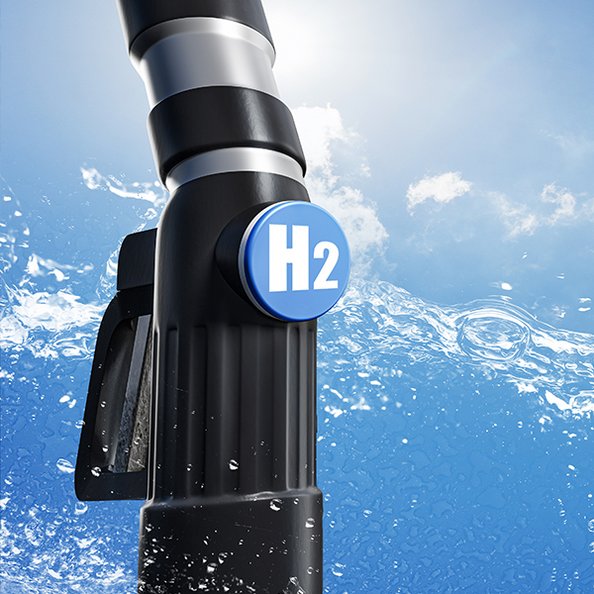
Innovation = Projects today and opportunities tomorrow
Sustainable development already integrates innovation into pragmatic project implementation today. Innovative energy projects can vary in terms of content and yet they always face a common challenge. Every project, every idea and all infrastructure plan have to find their place in a dynamic market in which legal requirements, economic conditions and political opportunities are constantly changing. It is important to realise the implementation despite partly unsuitable conditions, without obstructing the opportunities of the future. The path from project idea to realisation rarely runs on a straight line. It is therefore helpful to structure the process and to use a broad range of competencies from the outset. Regardless of whether your project is about energy generation, distribution or efficiency, a foundation can be created that remains sustainable under changing conditions.

Hydrogen sustainable building block H2 – more than just hype
Hydrogen as an energy source should actively help shape the transition towards a sustainable energy economy and thus ensure future viability. Electrolysers, hydrogen filling stations and other new infrastructure elements are shaping the future use of hydrogen and changing the stakeholder landscape. Innovations are not only created at the technological level, but also succeed thanks to successful collaboration of different stakeholders and new cooperative ventures, especially in the energy industry. These new alliances must be formed in a stable way, because there are many uncertainties in addition. In particular for the operation of electrolysis plants, legal advice and a good knowledge of the very dynamically developing framework conditions under energy law are necessary, since these are of great importance, for example, for the economic viability of these plants. This applies to any levies as well as to the legal definition of green hydrogen and the conditions for the greenhouse gas reduction rate. Especially for public institutions and municipal enterprises, advice on the implementation of the Clean Vehicle Directive is also necessary, especially if public transport is awarded via concessions.
Our services
- Technical-economic evaluation of concepts and ideas as well as clarification of legal, economic issues of the business model
- Calculation of hydrogen generation costs for different scenarios as well as with different synergies and operating modes
- Efficiency calculations and evaluation for electrolysers, production of hydrogen from biogas and alternative methods
- Estimation of the expected requirements for renewable energies to generate the required hydrogen
- Energy law advice, in particular on EEG surcharges and other surcharges for electricity that may be incurred for electrolysis in different operator models
- Answering approval questions

Sustainability is also a question of efficiency
Many industrial companies are not only working on the sustainability of their products, but also on other topics of the company. An increasingly important aspect is the energy supply for the production processes and the efficient use of the energy used. Regardless of whether it concerns the conversion of pellet drying from natural gas to hydrogen, the decoupling of waste heat from glass processing processes or self-power supply via a PV system, legal, economic and organisational questions must be answered against the background of new decision-making bases and the implementation of the adopted measures must be implemented in new cooperation models.
Our services
- Technical-economic evaluation of concepts and ideas as well as clarification of legal, economic issues of the business model
- Calculation of cost savings for different scenarios as well as with different synergies and operating modes
- Efficiency calculations and evaluation of the efficiency measures
- Energy law advice, in particular on levies, electricity tax and other regulatory aspects that arise in the various topics
- Answering approval questions